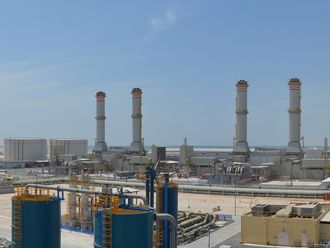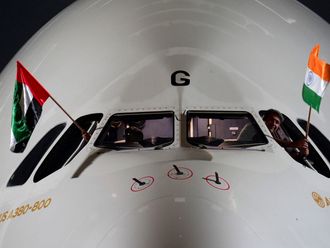The United Nations warned Iraq yesterday that its intention of receiving payments for oil exports in Europe's single currency would cost at least $270 million annually that otherwise would go to the Iraqi people.
Iraq, which has called the dollar the currency of its "enemy state," informed
oil customers earlier this month to start making payments in euros, beginning November 1. Baghdad also has threatened to stop oil exports, the bulk of which flows through the UN humanitarian program, if its request for payment in the euro is denied.
In a 10-page report, Suzanne Bishopric, the UN treasurer, outlined how Iraq
should go about making the switch, but said the euro would accrue lower interest than the dollar. She also said buyers of Iraqi crude would pay 10 cents a barrel less to offset the cost of dealing in euros rather than their usual dollar transactions.
"Given the magnitude of the issues, adequate time should be provided to ensure
the protection of the funds and the continued supply of humanitarian goods to
Iraq," she said.
UN Security Council members appear likely to allow Iraq to receive payment in
euros, with the United States and Britain, Baghdad's chief critics, raising no
objections.
But the chief UN financial officer has asked Iraq to delay any action until
proper arrangements could be made.
Joseph Connor, the UN undersecretary-general for management, said in a letter
to Iraq's UN Ambassador Saeed Hasan that the Central Bank of Iraq and UN
officials should consult first on "banking arrangements involved and currency
management issues."
Baghdad currently is selling about $60 million in crude a day, about 5 per cent
of the world's oil exports.
Contracts for goods as well as oil sales are approved by the United Nations,
which has a dollar-based escrow account at the New York branch of the French bank BNP-Paribas. More than $10 billion is in the bank.
The Security Council's sanctions committee is meeting on Monday. But French
diplomats said they believed Secretary-General Kofi Annan's office had the
authority to create a euro account without committee approval.
But Bishopric said the council might have to amend resolutions to authorize the
switch in currency. She said council documents noted that oil transactions must be "undertaken in accordance with normal commercial practice," which means dollars.
Before Bishopric's warning, the White House said on Thursday it made no
difference to the United States which currency Iraq used. "I don't think it
matters whether Iraq takes euros for oil rather than dollars," National Security Council spokesman P.J. Crowley said.
Yesterday, a State Department spokesman, speaking on condition of anonymity,
said U.S. officials had read the report and would not stop Iraq. But he did not
say if Washington would push for a delay.
UN says Iraq switch to euros would be costly
UN says Iraq switch to euros would be costly












